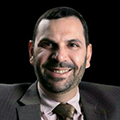
This report was originally published in Arabic by Al Jazeera Centre for Studies. It was subsequently translated into English by Al Sharq Forum. This is the summarized version of the English translation.
Abstract:
This paper examines the role of the jihadi movement’s “ulema” and its future, particularly in light of the dialectical relationship that links them with jihadi discourse and jihadi movements. This paper adopts an analytical and historical approach to identify the most important intellectual phases of this movement and the transformations of jihadi discourse and its intellectual framework. To study these transformations, the author conducted interviews with a number of the jihadi movement’s key figures and researchers specializing in the jihadi movement. After a historical and analytical review of the movement’s path and its most prominent declarations, the paper concludes that the jihadi movement has witnessed three phases in the development of its ulema. The first phase began with Sheikh Abdullah Azzam and Osama bin Laden. The second phase witnessed the rise of the ideas of Abu Muhammad al-Maqdisi and Abu Qatada. In the third phase, these ideas are still dominant along with others; however, the developments that swept the region after the Arab uprisings and the emergence of ISIS pose a serious challenge to them and the whole jihadi discourse. It has become clear to jihadi ulema and jurists that their discourse is not compatible with the Syrian context, where the key questions are tyranny and sectarian conflict. This constitutes a major challenge to this movement’s ulema and its jurists who were unable to adapt to the new situation or provide specific answers for it. The maximum efforts of sheikhs Abu Muhammad al-Maqdisi and Abu Qatada in this regard was to develop a critical approach in order to protect jihadi discourse from “ulema of the dominant jihadi reality”. However, all the indicators suggest that the movement’s ulema will, sooner or later, “review” their discourse themselves with their own tools and not with those of others.
